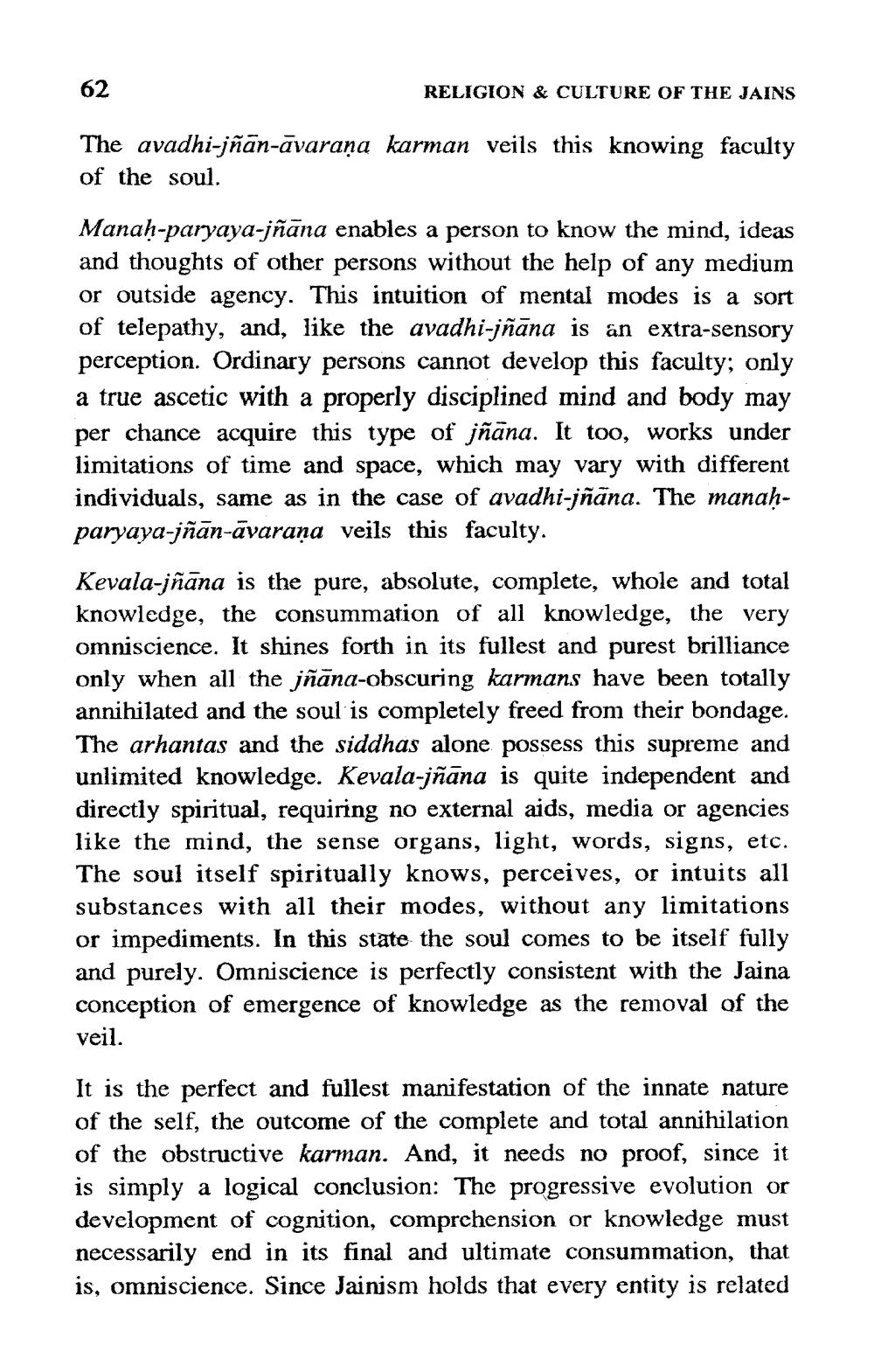________________
62
RELIGION & CULTURE OF THE JAINS
The avadhi-jñān-āvaraṇa karman veils this knowing faculty of the soul.
Manaḥ-paryaya-jñāna enables a person to know the mind, ideas and thoughts of other persons without the help of any medium or outside agency. This intuition of mental modes is a sort of telepathy, and, like the avadhi-jñāna is an extra-sensory perception. Ordinary persons cannot develop this faculty; only a true ascetic with a properly disciplined mind and body may per chance acquire this type of jñāna. It too, works under limitations of time and space, which may vary with different individuals, same as in the case of avadhi-jñāna. The manahparyaya-jñān-āvaraņa veils this faculty.
Kevala-jñāna is the pure, absolute, complete, whole and total knowledge, the consummation of all knowledge, the very omniscience. It shines forth in its fullest and purest brilliance only when all the jñāna-obscuring karmans have been totally annihilated and the soul is completely freed from their bondage. The arhantas and the siddhas alone possess this supreme and unlimited knowledge. Kevala-jñāna is quite independent and directly spiritual, requiring no external aids, media or agencies like the mind, the sense organs, light, words, signs, etc. The soul itself spiritually knows, perceives, or intuits all substances with all their modes, without any limitations or impediments. In this state the soul comes to be itself fully and purely. Omniscience is perfectly consistent with the Jaina conception of emergence of knowledge as the removal of the veil.
It is the perfect and fullest manifestation of the innate nature of the self, the outcome of the complete and total annihilation of the obstructive karman. And, it needs no proof, since it is simply a logical conclusion: The progressive evolution or development of cognition, comprehension or knowledge must necessarily end in its final and ultimate consummation, that is, omniscience. Since Jainism holds that every entity is related




